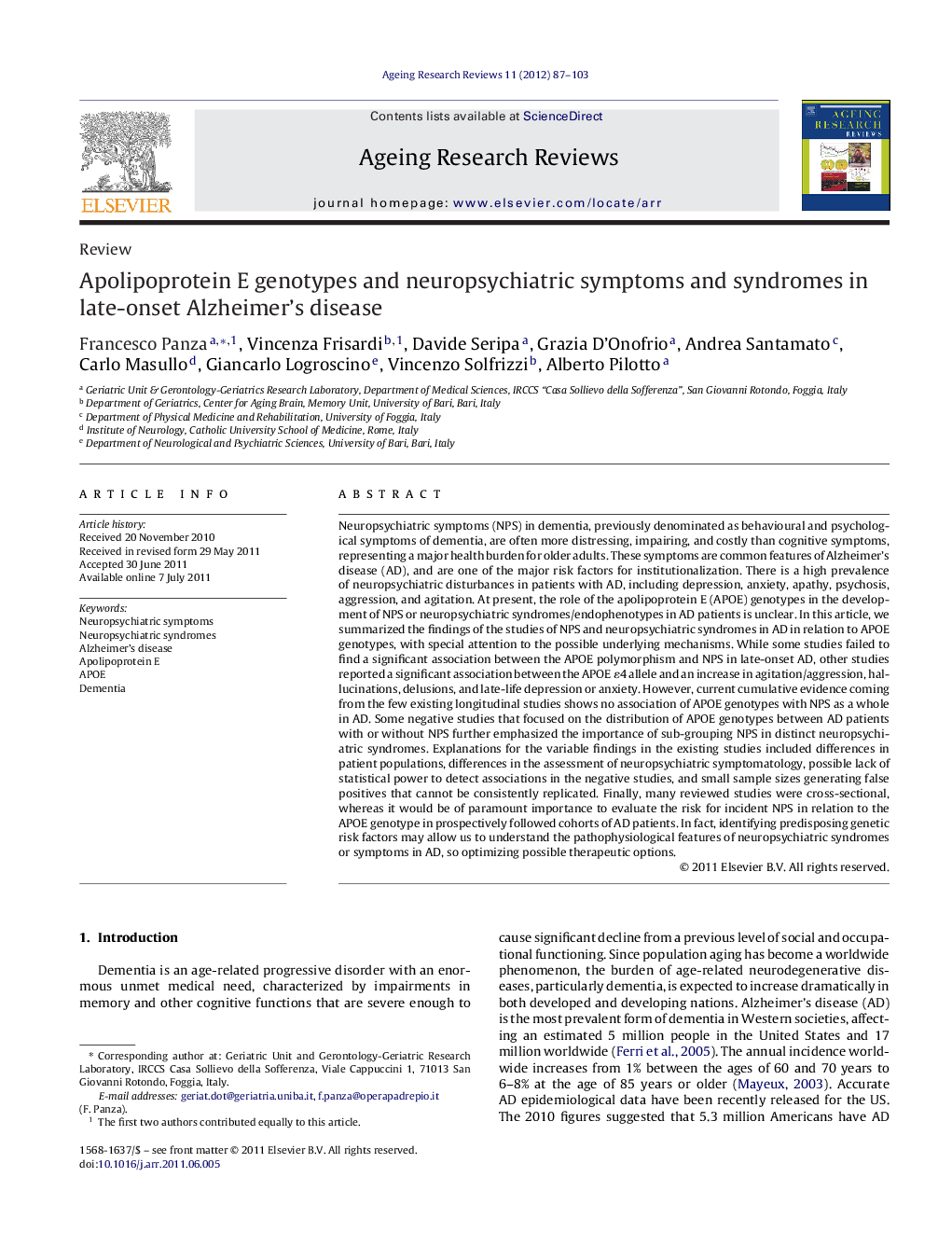| کد مقاله | کد نشریه | سال انتشار | مقاله انگلیسی | نسخه تمام متن |
|---|---|---|---|---|
| 1902328 | 1045738 | 2012 | 17 صفحه PDF | دانلود رایگان |

Neuropsychiatric symptoms (NPS) in dementia, previously denominated as behavioural and psychological symptoms of dementia, are often more distressing, impairing, and costly than cognitive symptoms, representing a major health burden for older adults. These symptoms are common features of Alzheimer's disease (AD), and are one of the major risk factors for institutionalization. There is a high prevalence of neuropsychiatric disturbances in patients with AD, including depression, anxiety, apathy, psychosis, aggression, and agitation. At present, the role of the apolipoprotein E (APOE) genotypes in the development of NPS or neuropsychiatric syndromes/endophenotypes in AD patients is unclear. In this article, we summarized the findings of the studies of NPS and neuropsychiatric syndromes in AD in relation to APOE genotypes, with special attention to the possible underlying mechanisms. While some studies failed to find a significant association between the APOE polymorphism and NPS in late-onset AD, other studies reported a significant association between the APOE ɛ4 allele and an increase in agitation/aggression, hallucinations, delusions, and late-life depression or anxiety. However, current cumulative evidence coming from the few existing longitudinal studies shows no association of APOE genotypes with NPS as a whole in AD. Some negative studies that focused on the distribution of APOE genotypes between AD patients with or without NPS further emphasized the importance of sub-grouping NPS in distinct neuropsychiatric syndromes. Explanations for the variable findings in the existing studies included differences in patient populations, differences in the assessment of neuropsychiatric symptomatology, possible lack of statistical power to detect associations in the negative studies, and small sample sizes generating false positives that cannot be consistently replicated. Finally, many reviewed studies were cross-sectional, whereas it would be of paramount importance to evaluate the risk for incident NPS in relation to the APOE genotype in prospectively followed cohorts of AD patients. In fact, identifying predisposing genetic risk factors may allow us to understand the pathophysiological features of neuropsychiatric syndromes or symptoms in AD, so optimizing possible therapeutic options.
► Neuropsychiatric symptoms (NPS) are common features of Alzheimer's disease (AD).
► Current evidence shows no association of apolipoprotein E (APOE) with NPS in AD.
► Findings on APOE genotypes and affective symptoms/syndromes in AD are contrasting.
► In AD, limited evidence exists on increased apathy or agitation in APOE ɛ4-carriers.
► As a whole, APOE does not appear to contribute to the risk of psychosis in AD.
Journal: Ageing Research Reviews - Volume 11, Issue 1, January 2012, Pages 87–103